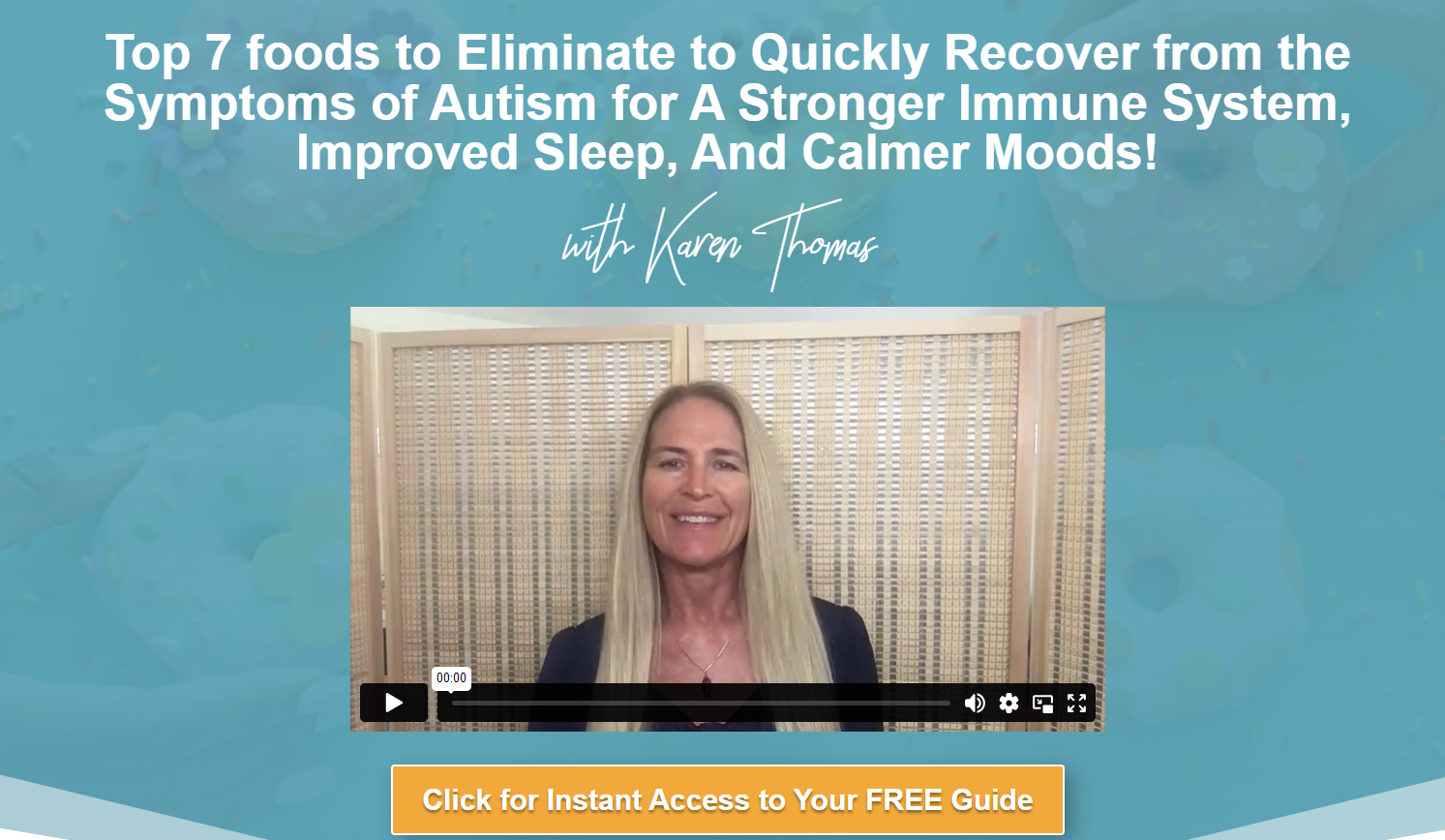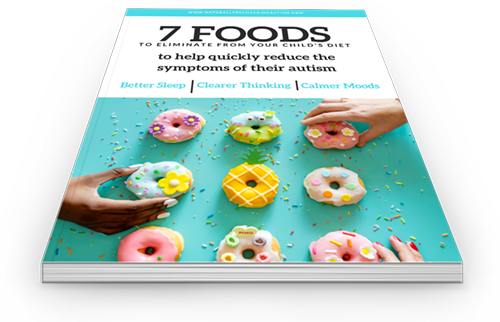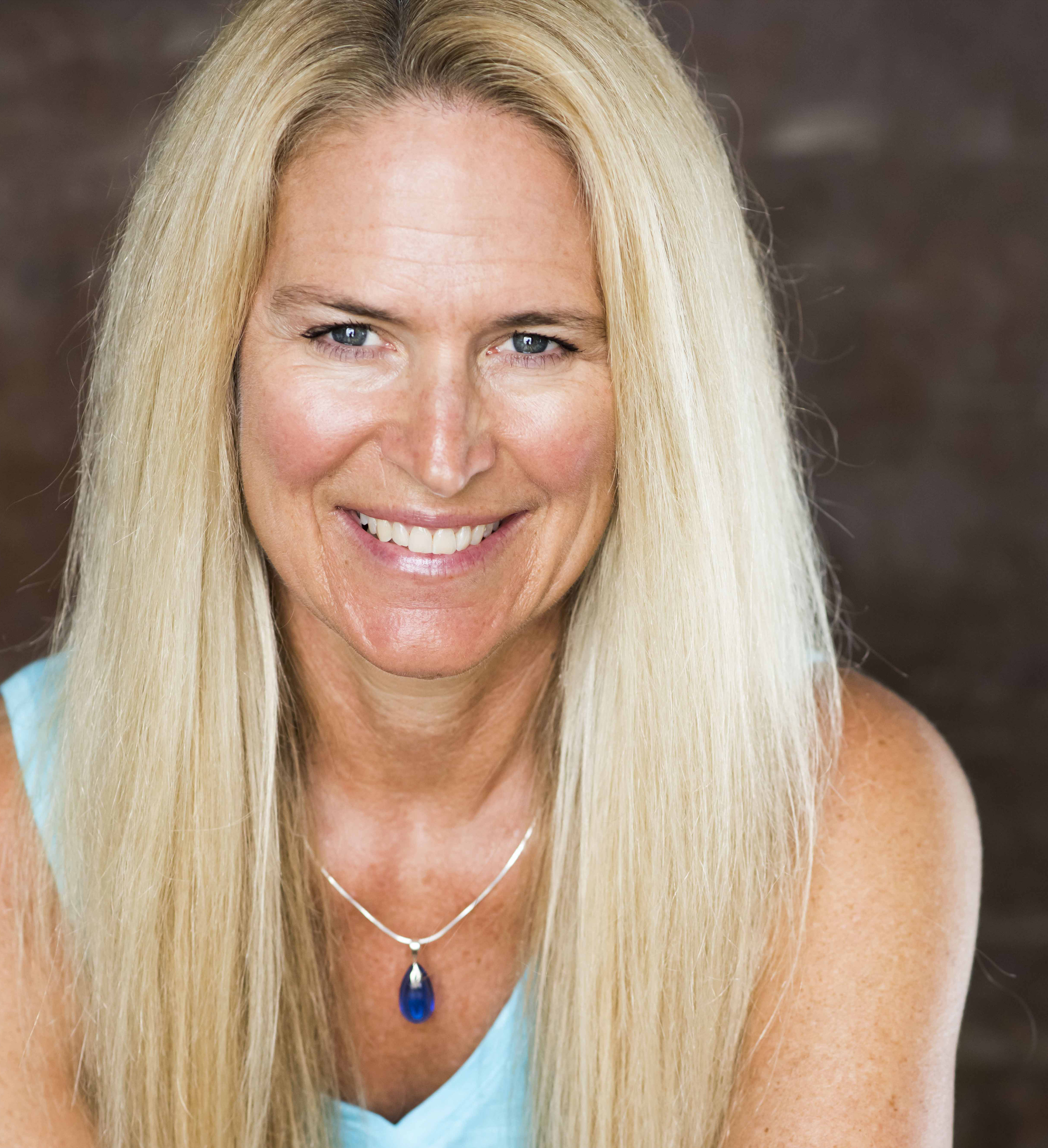Imagine transforming your kitchen into a haven of health for autism recovery. It’s not magic; it’s about making informed choices. Every meal, every snack you prepare, can be a step towards positive change.
In this eye-opening exploration, we’re not just talking about healthy eating; we’re diving into a crucial question: What foods to avoid with autism? Yes, you read that right. It’s not only about what to eat but also what not to eat.
In the next few paragraphs, prepare to be enlightened about the “autism food list” – a carefully crafted guide that’s more than just a dietary plan. It’s your secret weapon in managing and improving autism symptoms.
This isn’t just about food; it’s about empowerment, understanding, and taking control of autism recovery from your very own kitchen. There are underlying root causes to your child’s symptoms and they begin with their gut. Are you ready to discover the foods that could be holding back progress and how avoiding them can unlock a new level of health and wellness? Let’s embark on this culinary journey of discovery together!
The Connection Between Diet and Autism
The link between what we eat and autism is not just fascinating; it’s transformative. Did you know that certain foods can literally reshape the way individuals with autism experience the world? It’s true! From mood swings to energy levels, what’s on your plate can have a profound impact.
Let’s dive deeper. Why do certain foods affect autism symptoms? It’s all about the inner workings of our bodies. Some foods can trigger inflammation, disrupt gut health, or even alter brain chemistry, leading to noticeable shifts in behavior and well-being.
This is where our “autism food list” becomes more than just a guide – it’s a roadmap to understanding and managing autism through diet.
In our easy to use guide and resource, we’ll reveal the top 7 foods to avoid that will be essential on the road to autism recovery. Get the guide here!
Each item on this list is there for a reason, and understanding its impact could be your breakthrough in the journey towards recovery. Let’s make every meal count!
Transforming Health Through Diet: The Power of Food Choices in Autism Recovery
In summary, understanding what foods to avoid with autism is an essential step on the journey toward recovery. The foods we eat play a role in either exacerbating or alleviating autism symptoms. Eliminating the foods we’ve identified in our “7 Foods to Eliminate From Your Child’s Diet” can lead to significant improvements in behavior, mood, and overall health.
Reflecting on the potential positive outcomes of this dietary guidance, it’s clear that the choices we make in the kitchen can have a profound impact. By avoiding these seven foods, individuals with autism can experience reduced inflammation, better gut health, more stable mood and energy levels, and improved cognitive function.
This is more than a diet change; it’s a lifestyle adjustment that empowers individuals with autism and their families to take control of their health and well-being.
Remember, this journey towards recovery is not just about eliminating harmful foods; it’s about embracing a holistic approach to health that considers all aspects of well-being.
With each step taken in following this guidance, you’re paving the way for a brighter, healthier future for those affected by autism.
It’s also important to note that responses to dietary changes can vary significantly among individuals with autism. What works for one person might not work for another.
And while many parents and caregivers report improvements with certain dietary restrictions, the scientific community continues to research the extent and nature of these benefits.
Unlock the Full Potential of Diet in Autism Recovery
Are you ready to take a significant step towards autism recovery? We invite you to delve deeper into the world of dietary management with our comprehensive “7 Foods to Eliminate From Your Child’s Diet.” This guide is your key to understanding not just what foods to avoid with autism, but also why they can be detrimental to recovery and overall well-being. It’s more than a list; it’s a pathway to transformative health changes.
Don’t miss this opportunity to equip yourself with knowledge that can make a real difference. Opt in now for the “Top 7 Foods Guide” and start a journey of empowerment and health. Click [here] or fill out the form below to access your guide today. Your path to a healthier future for you and your loved one with autism begins now.
Nourishing Health in Autism Recovery
As we conclude this enlightening journey, remember that the road to autism recovery is one paved with hope, understanding, and proactive steps. The “autism food list” we’ve discussed is more than a dietary plan; it’s a blueprint for nurturing health and well-being. By being mindful of what foods to avoid with autism, you’re not just changing a diet; you’re transforming a life.
Your journey through these dietary changes is a testament to your commitment and love. It’s a journey filled with challenges, but also immense rewards. As you continue to navigate this path, remember that every small step counts. Each food item you remove from your child’s diet is a step closer to improved health and brighter days.
You are not alone in this journey. Together, with the right knowledge and choices, we can make a significant impact on the lives of those affected by autism. Stay inspired, stay informed, and most importantly, stay hopeful. The path to recovery, through careful dietary management, is within reach.
If you have any questions or concerns feel free to reach out to us here. If you’re looking for more support, feel free to read our blog “How To Choose the Best Autism Support Group for Parents”. In this blog we also include a link to a FREE, life changing event that can help deepen your understanding and enhance your skills in navigating the unique challenges and joys of parenting a child with autism.













